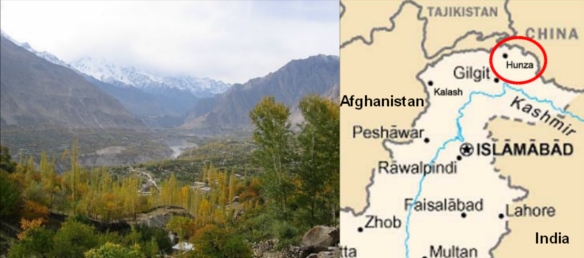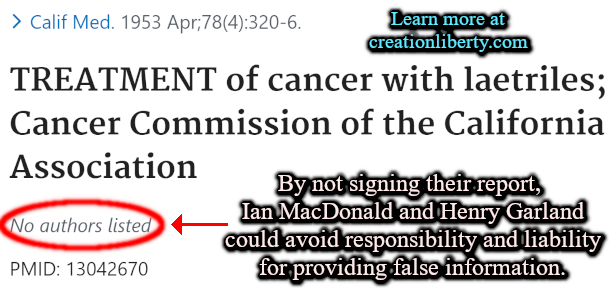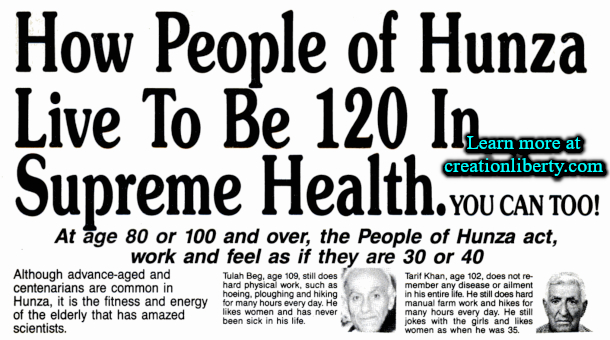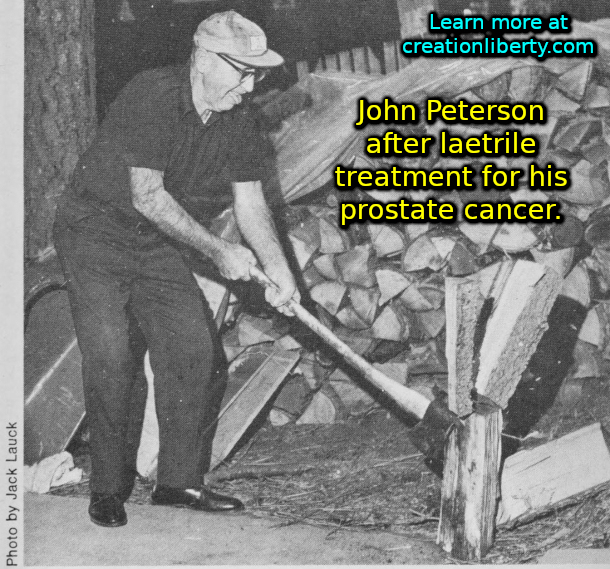
The study of the Hunzakuts have shown that their elderly often live over 100 years old (up to 120 in some cases). The average age of death in the US, with all the advanced medical technology and saftey regulations, is 78, but the average age of death in Hunza is 85.

Whereas Americans typically suffer many painful conditions before dying (and are usually dead a few years before their heart stops beating), the Hunza elderly often die peacefully in their sleep. Though there are many interesting facts about the Hunzas, the one to note is there are no reported cases of cancer in their society.
(For details on ages, see Los Angeles Times, Interview with Prince Mohammed Ameen Khan, May 7, 1973, Part I-A; For life expectancy, see "Life Expectancy at Birth," The World Factbook, Central Intelligence Agency [www.cia.gov])
"The Hunza has no known incidence of cancer. They have... an abundant crop of apricots. These they dry in the sun and use very largely in their food."
-Dr. Robert McCarrison, Journal of The American Medical Association, Jan 7, 1922, Vol. 78, p. 1-8
Apricots are the primary source of wealth in the Hunza valley. If you take the pit of the apricot, and break it open, there's a seed inside that looks like a nut. The Hunzakuts eat these seeds often. It is common for the Hunza to eat a handful of apricot seeds as an afternoon snack, and are also used in a wide variety of ways.

"My curiosity aroused, I asked, 'What do you do with the seeds you do not eat?'
The guide informed me that many are stored, but most of them are ground very fine and then squeezed under pressure to produce a very rich oil. 'This oil,' my guide claimed, 'looks much like olive oil. Sometimes we swallow a spoonful of it when we need it. On special days, we deep-fry our chappatis [bread] in it. On festival nights, our women use the oil to shine their hair. It makes a good rubbing compound for body bruises.'"
-Allen E. Banik & Renee Taylor, Hunza Land, 1960, Chapter 4, "Hunza Farming and Food," p. 123-124

In the experiments done by Dr. Krebs and Dr. Krebs Jr., it was found that the apricot seed has the highest concentration of B17 of any other seed or herb in the world. The only known cases of cancer for the Hunzakuts, are those people that leave their secluded society, and start eating a modern diet void of important nutriets, and the modern societies lose sight of the good in natural foods when they turn to processed food over God's created fruits and vegetables. And the king appointed them a daily provision of the king's meat, and of the wine which he drank... But Daniel purposed in his heart that he would not defile himself with the portion of the king's meat, nor with the wine which he drank... Prove thy servants, I beseech thee, ten days; and let them give us pulse to eat, and water to drink. Then let our countenances be looked upon before thee, and the countenance of the children that eat of the portion of the king's meat: and as thou seest, deal with thy servants... And at the end of ten days their countenances appeared fairer and fatter in flesh than all the children which did eat the portion of the king's meat.
No comments:
Post a Comment